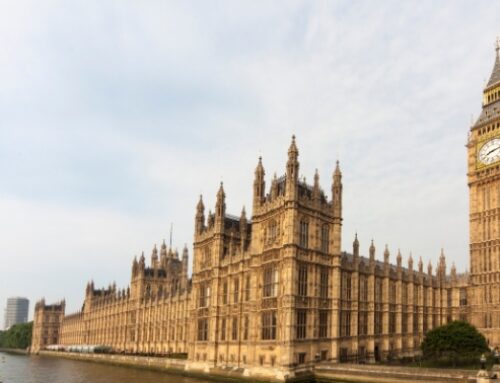At one point, it was looking like a cut in inheritance tax was inevitable in 2024. It was back in November that Chancellor, Jeremy Hunt, hinted at a pre-election tax cut, with former Prime Minister, Boris Johnson, stating that a cut in inheritance tax was ‘in the name of intergenerational fairness’. But now that the Spring Budget 2024 has been announced, it’s clear that things aren’t going to be that simple.
Instead of a clear, defined tax reduction for payers of inheritance tax, the UK government has instead carried out a ‘stealth raid’, increasing tax revenue for families across the country without explicitly labelling them as tax hikes. This is a significant story considering IHT receipts reached £6.3 billion last year, which is up around £400 million in 2022. So what exactly does this mean for the taxpayer and how exactly can they navigate IHT after the news?
Inheritance Tax Explained
Inheritance tax is placed on the value of an estate after the death of an individual. This will range from their household, their businesses, as well as their personal belongings. If the estate is worth more than £325,000, then inheritance tax will be applied, coming in at 40% above that threshold. Any inheritance that is passed to a direct descendant has an increased nil rate of £500,000.
The Problem with Inheritance Tax
The problem with inheritance tax is that it was initially contrived as a tax on the ‘wealthy’. Inheriting £325,000 from someone’s estate isn’t exactly a reality for everyone in the UK, but the problem is that this threshold was frozen back in 2009, and the frozen threshold will remain in place until 2028. £325,000 looks a little different fifteen years after 2009, and it will look considerably different by the time we get to 2028.
If the allowance was not frozen and had increased year-on-year since 2017, then the total threshold should have been £458,931 by 2028. With this in mind, families are likely to be forking out an extra £53,000 to IHT in 2028/29 alone, and this isn’t even taking into account the numerous extra individuals being dragged into the IHT net – which will benefit the amount raised for the government even more. Inflation, of course, has meant that more families than ever are going to be affected by IHT, and while there are ways to be within or below the threshold, it is incredibly hard to navigate without strong, independent financial advice.
The Stealth Raid
With the stealth raid of inheritance tax, it appears that more people are discussing the other, more definitive tax cuts, without realising that there has been a shadowy tax hike in a key area. As mentioned before, the inheritance tax was originally envisioned as a tax on the wealthy, but with house prices rising to such a degree, the threshold is going to affect more and more people, leaving them with a 40% loss on their inherited finances.
According to recent figures, one in eight people will have to deal with inheritance tax before 2032, with the proportion of deaths resulting in IHT projected to rise by over 7%. Of course, this has turned inheritance tax into a significant source of income for the UK government, which is part of the reason why inflation is essentially being ignored in the IHT-specific strategy of the Spring Budget.
How to Deal with Inheritance Tax
For those who have worked and saved all their lives, inheritance tax is essentially a confiscation of their assets, with the HMRC jumping in front of the queue ahead of bereaved family. This means that what was already an upsetting and stressful time has become even more stressful, not to mention complicated. As mentioned previously, there are ways to limit the amount of inheritance tax an individual pays, but the routes to achieving this are not always clear.
Many people will say, for instance, that placing assets into a trust is a surefire way to avoid paying IHT altogether. But setting up a trust is not without its own costs – a discretionary trust will be charged 20% in tax and 6% every ten years, a bare trust is still subject to the nil-rate band, and even non-taxable trusts can incur income tax, IHT, CGT, and stamp duty. Others will point to the allowances available for farming and family businesses, but once again, navigating these allowances is not easy, especially in the midst of such an upsetting, complicated time for the family.
This is why attaining independent financial advice can be so crucial. Through clear, concise planning, it’s possible to formulate a financial plan that takes you into the future, helping you to navigate a complex tax situation like this ahead of time. And with more people being dragged into the IHT arena, it’s more important than ever that people know how to deal with their assets, and have the correct plans to come out on the other side of IHT unscathed.
Please note: Inheritance tax planning, will writing, estate planning and trusts are not regulated by the Financial Conduct Authority (FCA)





